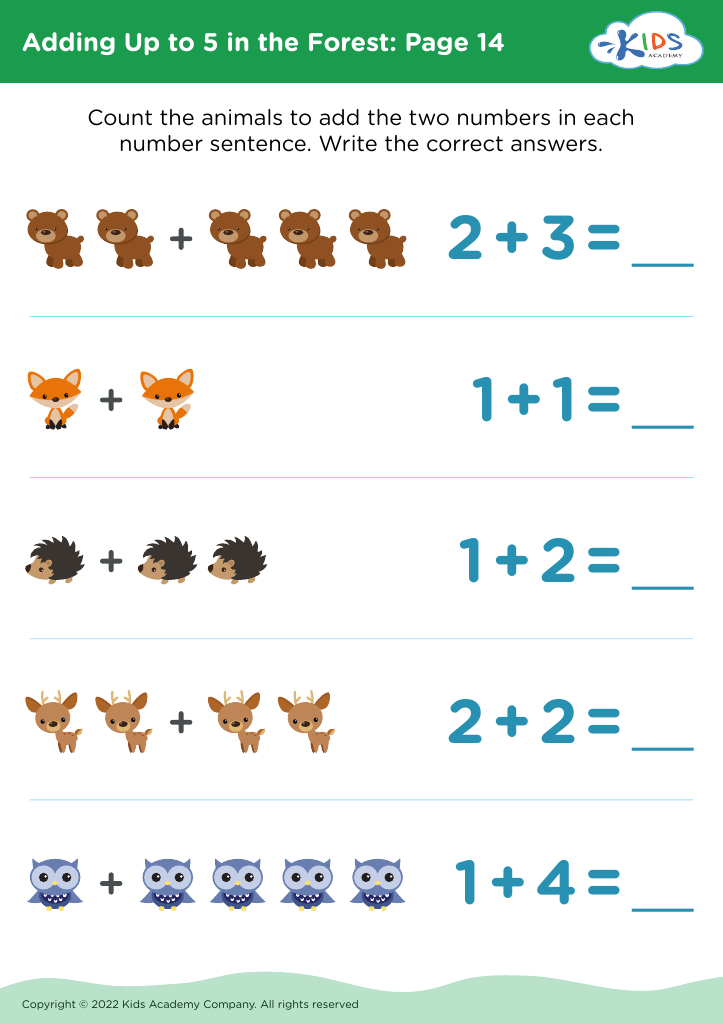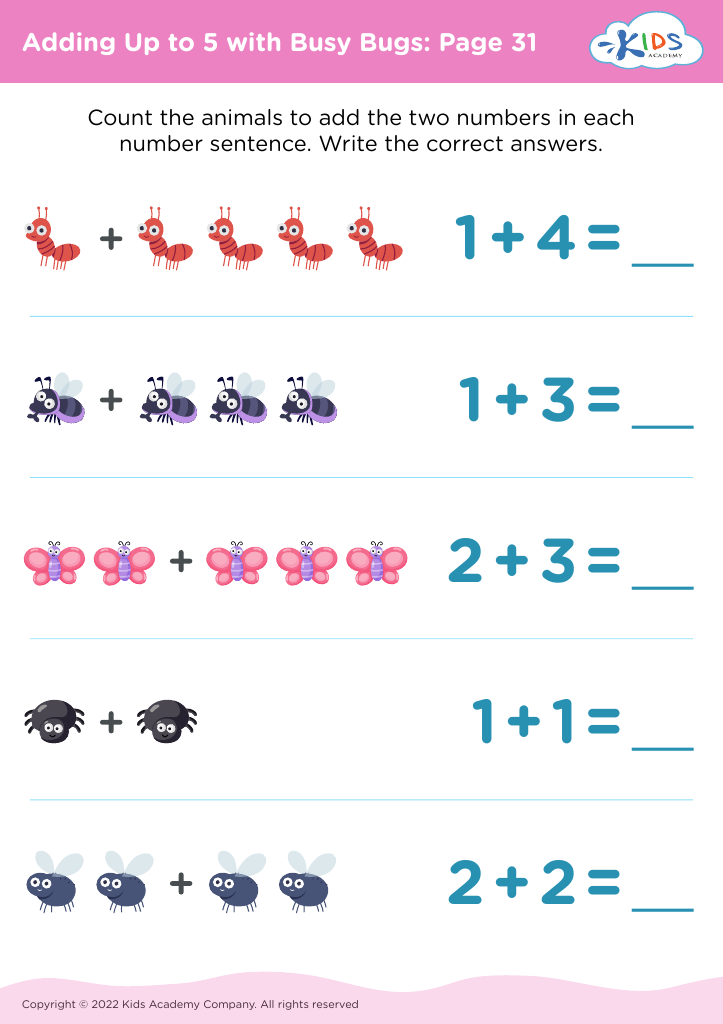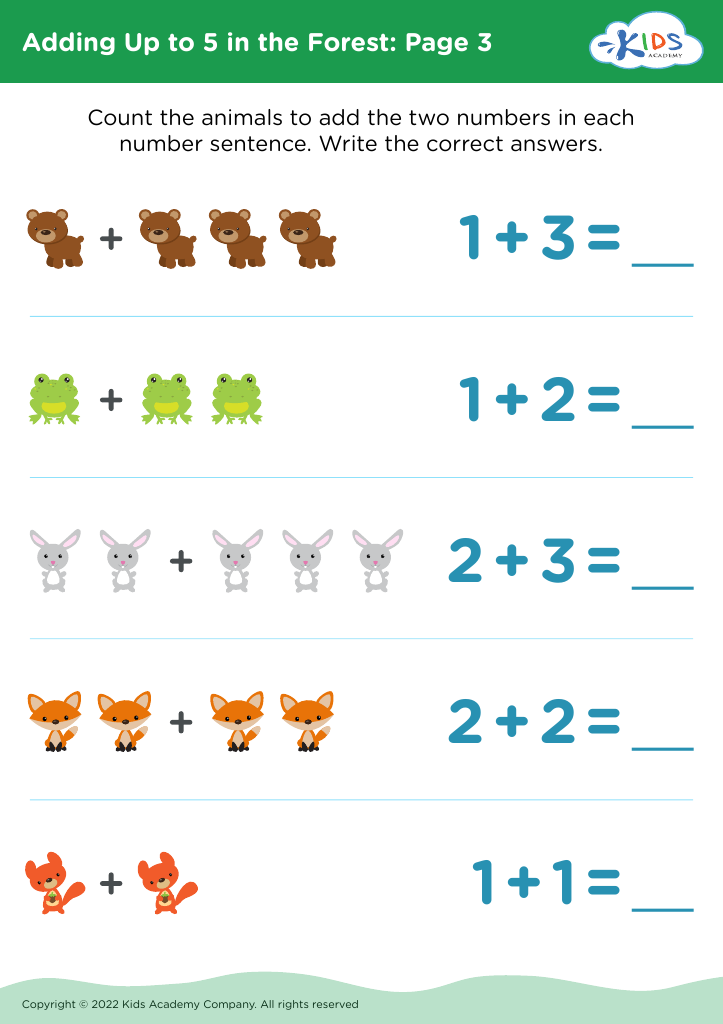Fine motor skills (drawing lines) Addition Worksheets for Ages 5-7
3 filtered results
-
From - To
Enhance your child's fine motor skills with our engaging "Drawing Lines" addition worksheets, specifically designed for ages 5-7. These printable worksheets seamlessly combine essential math practice with fun motor skill development. As children draw lines to complete addition problems, they strengthen hand-eye coordination and dexterity while boosting early math understanding. Our worksheets feature colorful designs and age-appropriate challenges to keep young learners motivated. Perfect for both classroom and home use, these activities encourage interactive learning and reinforce essential skills needed for future academic success. Download now and watch your child thrive in their math journey while mastering fine motor skills!
Fine motor skills are crucial for children ages 5-7 as they lay the foundation for numerous academic and everyday tasks. Drawing lines, an essential component of fine motor development, enhances hand-eye coordination, dexterity, and control. When children practice drawing lines, they not only gain proficiency in holding writing instruments but also develop the muscle strength necessary for more complex tasks like writing and crafting.
In addition, fine motor skills directly influence a child’s ability to perform mathematical skills, such as addition. The physical act of writing numbers and drawing number lines deepens their understanding of numerical concepts and relationships, fostering greater confidence in math. Mastery of these skills can lead to improved literacy and numeracy outcomes, critical indicators of future academic success.
Furthermore, engaging in activities that promote fine motor skills encourages cognitive development. As children practice drawing lines and adding, they also enhance their problem-solving abilities, concentration, and attention to detail. Parents and teachers who focus on these skills create enriching environments that enable children to excel in both academic and life skills, ultimately supporting their holistic development. Prioritizing fine motor practice is essential for nurturing well-rounded, capable learners ready for new challenges.




















